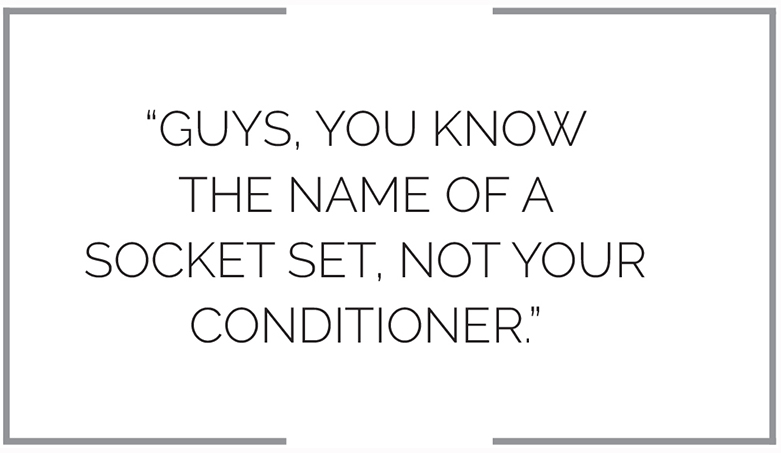
The End of Metrosexual
- Ryan Moran
- 12 Jan 2017
It’s time to stop confusing dignity with vanity
This…is a rant.
It’s high time that we obliterate one of the most detestable terms of the last 20 years: “Metrosexual.”
Although it’s creator, Mark Simpson, had intended a more specific meaning upon its introduction in 1990s, by the 2000s, the word “metrosexual” had truly come into its own as a contemptible term. By, at the latest, 2004, it was popularly understood and/or used to identify any man who took the smallest amount of concern for his appearance and presence.
You are tucking in your shirt? Metrosexual
You have product in your hair? Metrosexual
You pluck anything? Metrosexual
You wear shoes and shirt and expect service? Metrosexual
You brushed your teeth? Metrosexual
You pop your polo collar? That’s fine. Ultimately, the core problem is that it confused dignity with vanity, and presupposed that masculinity and being a man should be synonymous with doing the bare minimum of upkeep on one’s own self. Which, ironically, flies directly in the face of another component commonly associated with the pitiful, hyper-masculine interpretations of manliness. That being that a man should know how to build, fix, and maintain robust, manly things like decks, cabins, buildings, motors, and such. Moreover, that we should know all these things down to the smallest detail, and if we’re doing them, then we’re doing them right.
If this were the case, then why the hell should it end with ourselves, our standards of appearance, dignity, and the self that we show to the world? Why should we not put anything but our best face forward (literally and figuratively) as the bare minimum?
I remember a radio commercial in 2003 or 2004, I’m thinking for a beer, that was all about things we should know as men, “the Man Code.” In this commercial, the big punch line was “Guys, you know the name of a socket set, not your conditioner.”
Barf. Even from 20-year-old me that lame job got crickets.
As if it were so awful and emasculating that a man might consciously choose a specific hygiene product. This commercial was entirely reflective of the lame, hyper-masculine culture that created and used this flawed concept of the dreaded metrosexual.
Dreaded mainly because, worse even than this already flawed understanding, is that it became a term with an insulting intent deeply rooted in homophobia and sexism. Hypermasculinity, in all it’s slobby, arrogant, simple-mindedness, is so insecure about it’s own masculinity that it deems anything less than the bare minimum of personal upkeep and presentation as effeminate, or “gay.” And I really don’t need to touch how stupid and socially backwards that is, unless we have another six hours here, which I don’t.
Beyond the homophobic and sexist, this is about effort. Effort put towards making oneself better. We can appreciate physical and intellectual betterment, so why should it end with the self-respect and effort required to have an appearance that matches?
Suffice it to say that masculinity has thankfully evolved since the early 2000s. It’s far from perfect, and there are still too many men who are, on a daily basis, also excessively far from perfect, whether in belief, thought, practice, or even subjects as trivial as style. But at least things have progressed to the point where “metrosexual” has all but left our popular vernacular.
Finally, lest we forget, this is not the first time in history that men have been concerned with their appearances. If anything, the final few decades of the 20th century were really just an unfortunate blip. Thank you very much, Boomers.
So. Let’s kill the concept of “metrosexual”. Let’s let it go.
As of 2012, the updated definition of metrosexual by Simpson was: “The typical metrosexual is a young man with money to spend, living in or within easy reach of a metropolis — because that’s where all the best shops, clubs, gyms and hairdressers are. He might be officially gay, straight or bisexual, but this is utterly immaterial because he has clearly taken himself as his own love object and pleasure as his sexual preference.”
When I read that I don’t read it as a distinctly male identity – though I do read it as the other side of the same coin as the same insecurities that drive hyper-masculinity.
What I truly read is a buzzy, false, and redundant word used to describe something we’ve always detested anyway, vanity.
So let’s just call it that, and otherwise appreciate and encourage all forms of growth and development toward betterment of a male identity.
Comments 0
There are no comments


Add comment